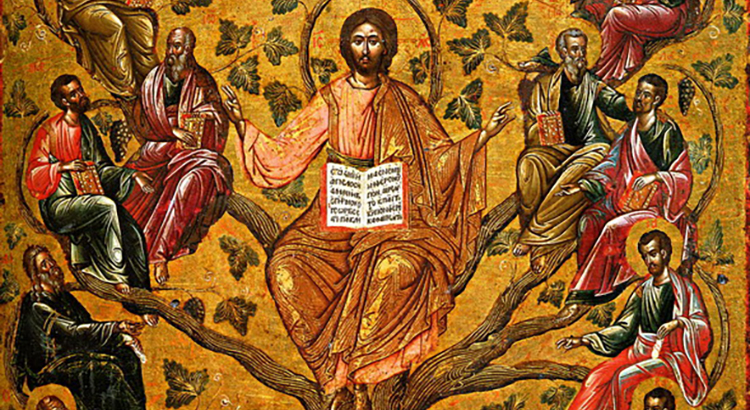Memory of the apostles
Feast of the apostle Thomas. He confessed Jesus as his Lord and, according to tradition, witnessed him all the way to India.
Reading of the Word of God
Alleluia, alleluia, alleluia
If we die with him, we shall live with him,
if with him we endure, with him we shall reign.
Alleluia, alleluia, alleluia
John 20,24-29
Thomas, called the Twin, who was one of the Twelve, was not with them when Jesus came. So the other disciples said to him, 'We have seen the Lord,' but he answered, 'Unless I can see the holes that the nails made in his hands and can put my finger into the holes they made, and unless I can put my hand into his side, I refuse to believe.' Eight days later the disciples were in the house again and Thomas was with them. The doors were closed, but Jesus came in and stood among them. 'Peace be with you,' he said. Then he spoke to Thomas, 'Put your finger here; look, here are my hands. Give me your hand; put it into my side. Do not be unbelieving any more but believe.' Thomas replied, 'My Lord and my God!' Jesus said to him: You believe because you can see me. Blessed are those who have not seen and yet believe.
Alleluia, alleluia, alleluia
If we die with him, we shall live with him,
if with him we endure, with him we shall reign.
Alleluia, alleluia, alleluia
Today we celebrate the feast of St. Thomas, called Didymus. The Gospel of John speaks of it several times in connection with some important moments in the life of Jesus. Thomas was not a bad disciple, on the contrary he was generous. When Jesus wanted to go to Lazarus, sick, and there was a grave danger for the life of the Master, Thomas, on behalf of all the disciples, said "let's go and die with him." He was too sure of himself, of his feelings, of his convictions, as is clear on the evening of Easter. To the other apostles who told him that he had seen the risen Lord, he replied precisely with that incredulity that made him say: "Unless I see the mark of the nails in his hands, and put my finger in the mark of the nails and my hand in his side, I will not believe." It is not the assertion of a bad man. It is the creed of a man who does not see beyond himself, beyond his convictions, beyond what he does not see and does not touch. We too are close to Thomas, sure as we are of ourselves, of our feelings, of our convictions, of what we see and touch. Thomas needs to meet the Lord again, to listen to him, to see him and even to touch him. And behold, Jesus returned again among the disciples eight days later. He said: "Put your finger here and see my hands. Reach out your hand and put it in my side. Do not doubt but believe." Thomas was touched by these words of Jesus. And in front of that wounded body he exclaimed: "My Lord and my God!" Faced with these words, Jesus, turning to him, and thinking also of all those who would follow, said: "Have you believed because you have seen me? Blessed are those who have not seen and yet have come to believe." It is the last beatitude of the Gospel. And it is bliss also for us, called to believe without seeing. After the paschal apparitions faith does not arise from the vision of the Risen One, as the apostles had it, but from listening to the Word of God transmitted through preaching and from seeing and touching the wounds of the poor and those affected by evil.
